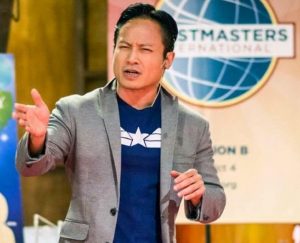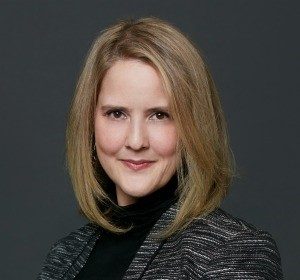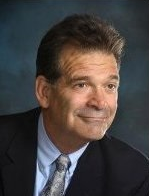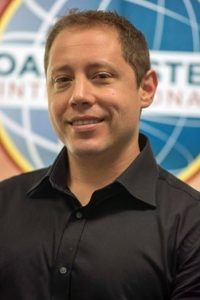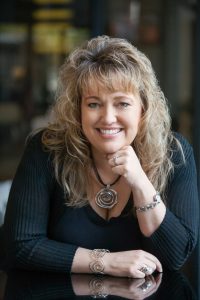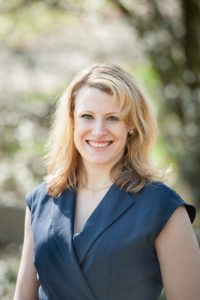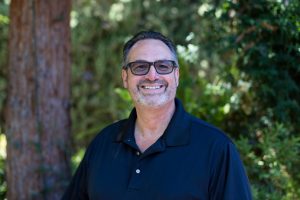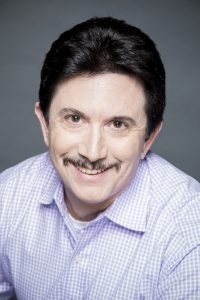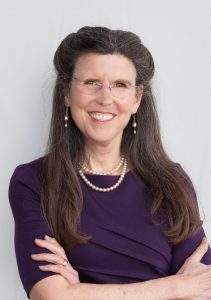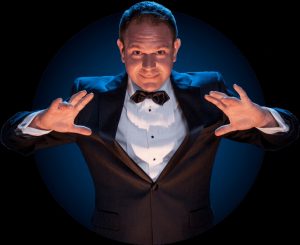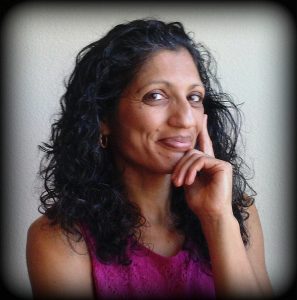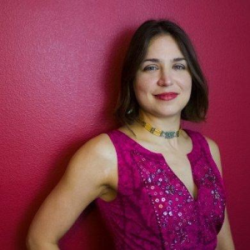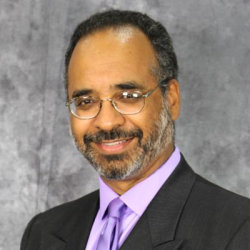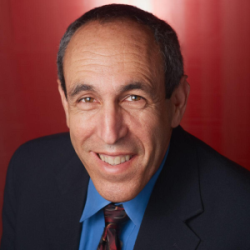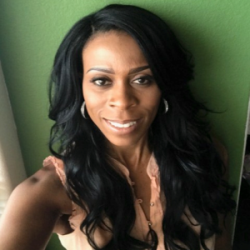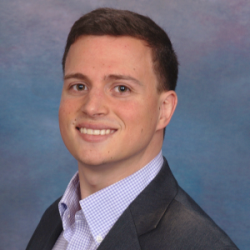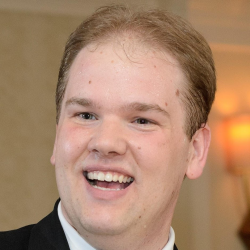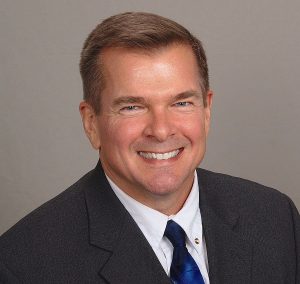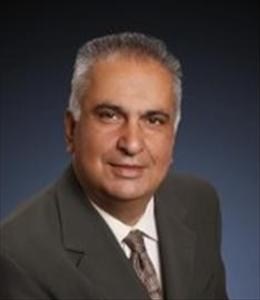 Club Member Spotlight: Faz Binesh
Club Member Spotlight: Faz Binesh
Are you aware of the saying; “don’t put the cart before the horse”? I have always tried to follow this rule but there are times you go about doing things habitually and it never occurs to you that you are putting the cart before the horse.
Years ago, when I had to type my term paper, I would type on the typewriter one character at a time. By the time I was in the middle of the page, I would make a mistake. The younger members may not remember this or even know what a typewriter was, but the over 50 members can relate to the fact that I would take the paper out, dispose of it, and start over. That was all you could do. It was not possible to delete the character or edit the document. A prudent man would learn to type well first before typing the papers.
If a student wants to be efficient in reading a lot of books in college, he/she should take speed reading before taking the courses, not after graduating from college. The same is true about interview skills. Everyone looking for work should learn interview skills before the interview, not after. Why go through the same mistake over and over and not get the job? Most people do not really find out why they did not get the job. But the answer is right here in front of them; “putting the cart before the horse.”
That brings us to Toastmasters. I had learned Toastmasters while I was going to college but the idea of putting the horse before the cart did not cross my mind at the time. I was too busy to think about any other activity outside of school and work. Years later, I came across an advertisement in the local newspaper about Castro Valley Toastmasters Club and I had the time to attend one of the meetings.
There were only a handful of people at that particular meeting. I was not intimidated and liked the idea of giving speeches. I became a member that same night. Soon I became aware of ‘ahs and uhms’, filler words, which were detrimental in my conversation. Then, I worked on the mastery of giving speeches, evaluations, Table Topics, speech writing, speech contests, and leadership roles- not necessarily in that order. For me, one learning opportunity led to another and I find it interesting that I can learn so much from my peers in Toastmasters by doing as we go along.
Toastmasters International, the most unique organization in human development, opens the door to a world of opportunities. You will be able to accelerate your journey to success. When I look back to my years before Toastmasters comparing it to now, I see, and my peers can attest to, a total transformation. Aside from personal and professional growth at exponential rate, this success in transformation has inspired me to venture into keynote speaking and leading workshops and seminars. Throughout the years, it has paid off for me in saving money, effort, and time. Now, I can recognize when I am about to put the cart before the horse. I will make sure to do what is necessary to put the horse before the cart.
Faz Binesh
_________________________________________________________________
 A Bad Start by Chuck Chang
A Bad Start by Chuck Chang
A Bad Start
When I stepped in as an area director, membership was very low. In my 4 clubs, I had 37 members, which was half the size of other areas in my division. Of the 4 clubs, 3 were in such danger that the district could assign club coaches to save them. A club put a photo online, with only 5 members in a meeting. They were celebrating a break from a speech drought.
What could I do?
When my fellow area directors were preparing for speech contests, I was worried about losing my club. When I visited clubs, officers told me, “Chuck, we need speakers.” Or, “Chuck, members do not sign up for speeches.” I felt hopeless. I am serving in an area outside of where my home club’s area. I did not know many members in this area that was new to me. I only know that the fewer speeches, the fewer guests join a club. The fewer guests join a club, the fewer members; the fewer members, the fewer speeches. Everything turned into a downward spiral.
A company’s story gave me hope
Alcoa was no better. Alcoa was a large producer of aluminum. Its product wraps Hershey’s Kisses, and makes Coca-Cola cans. It had been very successful since the company stated in 1886. However, after 100 years, Alcoa got old. Product quality dropped. Sales went down. The less money, the fewer new machines; the fewer new machines, the worse the products. The worse products, the less money earned. Everything, like my area clubs, turned into a downward spiral.
How did the company come back up?
In 1987, Paul O’Neil stepped in as a CEO. His mission was to save the company. His grand plan was to achieve “0 injury.” Interestingly, after O’Neil announced his plan, everybody worked together. Workers replaced old or dangerous machines. Managers shared safety reports with one another. O’Neil listened to employees for making Alcoa a safer workplace. With new machines, productivity increased. By sending safety reports, managers shared market information. In addition to safety suggestions, O’Neil heard good ideas for making the company more efficient. When O’Neil retired in 2000, the company’s net income grew by 5 times. A safety call made the company profitable. It was incredible.
How can I repeat the success?
I now ask our members to “Recycle Your Speech,” both inside and outside my area. First, a member gives a speech in a club. Second, the member receives an evaluation in a meeting. Then, he or she polishes the speech, and then gives the speech again in another club, especially in my area clubs. I even created a video of “Recycle Your Speech”:
How “Recycle Your Speech” saves my clubs?
With guest speakers, my area clubs show quality speeches to guests. Once guests hear good speeches, they become members. The more speeches, the more members; the more members, the more speeches given. I’m turning a vicious cycle to a virtuous cycle. O’Neil saved his company with “0 injury”. I am saving my clubs with “Recycle Your Speech.”
Can other clubs do it?
Yes, invite speech contestants to give speeches in your club. Encourage contestants to recycle their speeches. Good speeches inspire members, motivate guests, and most importantly, save clubs.
Chuck Chang
H28 Area Director
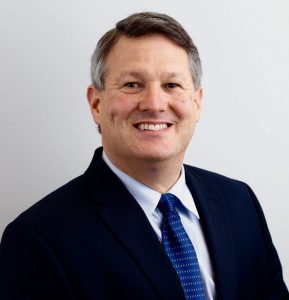 Build Relationships And People Will Follow
Build Relationships And People Will Follow
(How to Grow Your Club from Inside Out)
by Bryan Fisher, ACS
Despite today’s fast-paced, uber-efficient, highly-technological world, one thing that has never changed is our need to care for one another. When people feel important, they respond with involvement, and club numbers grow.
That is why, when AAA Talkers raised its collective hand for District 57 help, back in 2015, having dwindled to a handful of active members. The solution to growth was not merely a well-schemed public relations campaign to generate MINO (Members in Name Only). The story of our success has been person-to-person, one-on-one friendships, and the increasing numbers slowly followed. Now, in 2017, we are a District Distinguished Club.
Here are some lessons we learned that generated organic and institutional growth.
1. Believing is Seeing
Belief is positively contagious, and it is amazing how morale has turned around in our club, from that of obligation and fear of speaking to one of opportunity and desire for personal growth.
Jana Barnhill, DTM, Toastmasters International President from 2008-2009, once said, “We inspire each other to move beyond what is holding us back . . . We must first believe that we can.”
We had a Club Coach, Jim Sartor, who spent time with us, encouraged us, and believed in us. Over time, we believed in ourselves. As a result, we have broken barriers in public speaking and in our careers. When people believe in me, it makes me believe in myself. That is what you do as a leader – believe in your fellow members and crazy good things will happen.
2. Mentoring is Helping
When a new member joins, we immediately assign a mentor to develop a caring relationship. When people know someone cares about them, they stay involved. As a result, people do not fall through the cracks of anonymity, and they are held accountable to their commitment to their company and to themselves for growing in confidence with leadership and public speaking. In turn, the growing member becomes a mentor for another new comer, and the cycle repeats for continued internal growth.
3. Reaching Outside is Fulfilling
Most corporations realize the need for training and development, so at CSAA Insurance Group, we developed a relationship with our Chief Administrative Officer, Marie Andel, and our Talent Development Executive, Bruce Baumgarten, who became our club’s Executive Sponsor.
Whenever there is a need to help folks with their presentation, leadership, or speaking development, our Toastmasters club is the first choice as a training tool. In fact, at a recent career development fair, AAA Talkers hosted a table, where 26 employees indicated an interest in joining Toastmasters.
“People do not care how much you know, until they know how much you care,” wrote Jack Lannom in his book People First. The thing that attracts people at AAA Talkers is fellowship they gain by joining. The DNA at CSAA IG is that of a caring group of people, both for one another and in the community, and though innovations abound, one thing that will never change is the need for people who care.
Bryan Fisher, ACS
President, AAA Talkers
Every month, we will be putting out a newsletter with information about what is happening in District 57, tools for success, club member spotlights, and more. Look out for the Toast Post newsletter in your inbox!
Check out the last few editions here:

